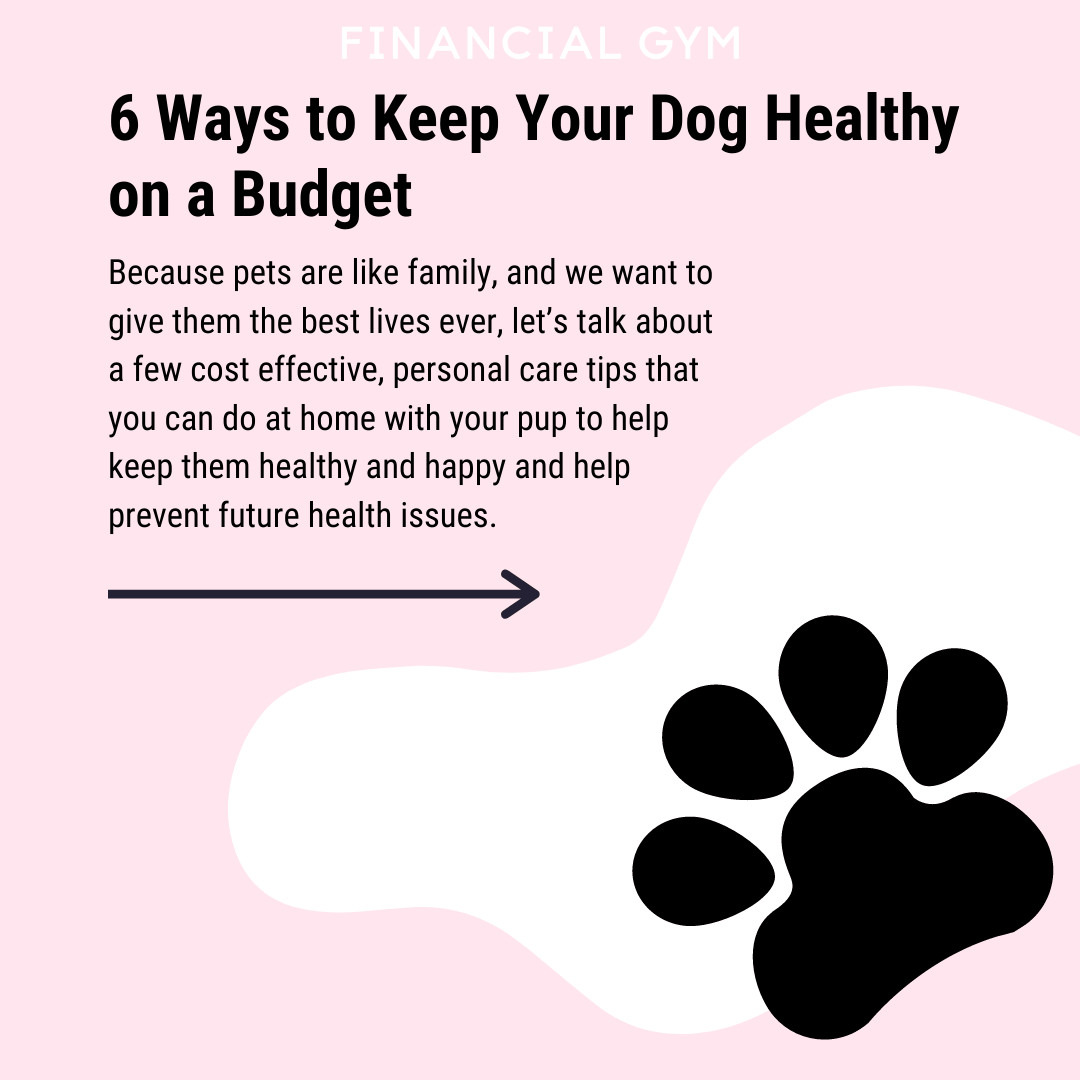To prevent health problems in dogs, make sure to vaccinate them appropriately, use veterinary-recommended preventive medications for fleas, ticks, and parasites, and consult with your veterinarian on how to prevent infections from wildlife or other animals. Additionally, exercise your dog daily, keep a balanced treat jar, engage them in mental activities, schedule annual veterinary visits, check for lumps and bumps, avoid exposing them to secondhand smoke, play with them regularly, and maintain their oral hygiene by brushing their teeth.
Lastly, work with your veterinarian to create a nutrition and exercise plan to prevent obesity in your dog. By following these tips, you can ensure your dog’s health and well-being.
Regular Veterinary Visits
Regular veterinary visits play a crucial role in preventing health problems in dogs. Follow these top 6 tips to keep your furry friend healthy: vaccinate appropriately, use preventive medications for fleas and ticks, prevent infections from wildlife, exercise daily, schedule annual vet visits, and maintain a healthy weight through proper nutrition and exercise.
Why Regular Veterinary Visits Are Important
Regular veterinary visits are essential for maintaining the health and well-being of your furry friend. Just like us, dogs can develop health problems that need to be addressed by a healthcare professional. These visits allow veterinarians to thoroughly examine your dog, assess their overall health, and identify any potential issues before they become major concerns.Recommended Frequency Of Vet Visits
The frequency of vet visits for dogs can vary depending on their age, breed, and overall health status. However, it is generally recommended that dogs have a check-up at least once a year. Regular visits ensure that any underlying health conditions are detected early on, giving your dog the best chance for successful treatment and recovery. If your dog has a preexisting health condition or is a senior, more frequent visits may be necessary to closely monitor their health.The Importance Of Vaccinations
Vaccinations are an essential part of preventive healthcare for dogs. They protect against potentially deadly diseases and can significantly prolong your dog’s life. Vaccines work by stimulating your dog’s immune system to recognize and fight off specific diseases. Your veterinarian will determine which vaccines are necessary based on factors such as your dog’s lifestyle, age, and regional disease prevalence. It’s important to stick to the recommended vaccination schedule to ensure maximum protection for your furry friend. Regular veterinary visits play a crucial role in promoting and maintaining your dog’s health. By following the recommended frequency of visits and ensuring your dog receives necessary vaccinations, you can proactively prevent health problems and give your beloved pet the best chance at a long and healthy life. Don’t hesitate to reach out to your veterinarian for guidance and advice tailored to your dog’s specific needs.
Credit: financialgym.com
Preventive Medications
Discover the top 6 tips to prevent health problems in dogs, including vaccinating appropriately based on their lifestyle, using veterinary-recommended preventive medications for fleas, ticks, and parasites, and consulting with your veterinarian on preventing infections from wildlife or other animals.
Keep your furry friend healthy and happy with these preventive measures.
Flea And Tick Prevention
Fleas and ticks are not only annoying to dogs, but they can also transmit diseases. It is crucial to take preventive measures to protect your furry friend from these pesky parasites. Regularly applying flea and tick prevention medication is one of the most effective ways to keep these pests at bay.Intestinal Parasite Prevention
Intestinal parasites like roundworms, hookworms, and tapeworms can cause serious health problems in dogs. Preventive medications can help in keeping these parasites under control and ensure the well-being of your four-legged companion. Here are some essential tips to consider for preventive medications when it comes to protecting your dog’s health:- Consult with your veterinarian: Talk to your veterinarian about the appropriate flea and tick prevention medications suitable for your dog’s breed, age, and overall health.
- Follow the recommended dosage: Administer the preventive medication as per your veterinarian’s instructions. It is important to use the correct dosage to ensure its effectiveness and safety for your dog.
- Choose a reliable product: There are numerous flea and tick prevention products available in the market. Opt for veterinary-recommended brands that have proven track records in effectively fighting off these parasites.
- Be consistent with treatment: Regularity is key when it comes to preventive medications. Follow the recommended schedule for applying flea and tick prevention treatments to ensure continuous protection for your dog.
- Consider the environment: If your dog spends a lot of time in outdoor areas where fleas and ticks thrive, you may need to use additional preventive measures such as collars or sprays to provide extra protection.
- Monitor for any adverse reactions: While preventive medications are generally safe, it’s important to keep an eye out for any unusual reactions in your dog. If you notice any signs of discomfort or allergies, consult your veterinarian immediately.
Exercise And Mental Stimulation
Keeping your furry friend physically active and mentally engaged is essential for their overall well-being. Regular exercise not only helps to keep your dog’s body in good condition, but it also plays a crucial role in preventing various health problems. In addition, mind stimulation activities can help prevent mental boredom and promote a healthy and happy canine companion. Here are some tips to ensure your dog gets sufficient exercise and mental stimulation.
Benefits Of Regular Exercise
Regular exercise is not only beneficial for humans but for dogs as well. Here are some key advantages:
- Weight management: Adequate physical activity helps to prevent obesity, a condition that can lead to various health issues in dogs.
- Joint health: Exercise promotes strong and flexible joints, reducing the risk of arthritis and other joint problems.
- Muscle development: Engaging in physical activities helps to build and maintain strong muscles, improving your dog’s overall strength and endurance.
- Mental well-being: Exercise releases endorphins, which are feel-good hormones. Regular physical activity can help reduce anxiety and promote mental well-being in dogs.
Mind Stimulation Activities
Mental stimulation is just as important as physical exercise for dogs. Here are some activities you can incorporate to keep your furry friend mentally engaged:
- Puzzle toys: Invest in interactive toys that require problem-solving skills, such as treat-dispensing puzzles or puzzle balls. These toys keep your dog entertained and mentally stimulated.
- Hide and seek: Hide treats or toys around the house or yard and encourage your dog to find them. This game utilizes their sense of smell and keeps them engaged and focused.
- Obedience training: Regular training sessions not only reinforce desired behaviors but also provide mental stimulation for your dog.
- Playdates: Arrange playdates with other well-behaved dogs. Social interaction with other animals is a great way to stimulate your dog’s mind.
- Sniffing games: Take your dog on sniffing walks where they can explore different scents and engage their senses.
By incorporating regular exercise and mind stimulation activities into your dog’s routine, you’ll be taking important steps to prevent health problems and promote their overall well-being. Remember to tailor the activities to your dog’s specific needs and energy levels, and always consult with your veterinarian for personalized advice.
Maintaining A Healthy Weight
One of the most important aspects of keeping your dog healthy is maintaining a healthy weight. Just like in humans, obesity can lead to a number of health problems in dogs. From joint issues to heart disease, the dangers of obesity in dogs cannot be overlooked.
The Dangers Of Obesity In Dogs
Obesity in dogs can negatively impact their overall health and wellbeing. Some of the dangers associated with obesity include:
- Joint problems and decreased mobility
- Increased risk of heart disease
- Higher chances of developing diabetes
- Difficulty breathing and decreased stamina
- Higher risk of heat stroke
It is essential to recognize the signs of obesity in dogs, such as difficulty in movement and excessive weight gain, to take timely action and prevent health problems.
Creating A Nutrition And Exercise Plan
A vital step in preventing obesity in dogs is to create a nutrition and exercise plan tailored to their specific needs. Here are some tips to help you create a plan that will keep your dog at a healthy weight:
- Consult with your veterinarian: Get professional advice from your vet to determine your dog’s ideal weight and discuss any specific dietary recommendations.
- Choose a balanced diet: Opt for high-quality dog food that provides the necessary nutrients without excessive calories. Avoid overfeeding and limit treats.
- Control portion sizes: Use a measuring cup to ensure you’re feeding the appropriate amount of food for your dog’s size and activity level.
- Incorporate regular exercise: Engage your dog in daily physical activities such as walking, playing, and interactive games to help burn calories and keep them fit.
- Monitor weight: Regularly weigh your dog and keep track of their weight to ensure they are maintaining a healthy weight.
- Stick to the plan: Consistency is key. Stick to the nutrition and exercise plan you have created and make adjustments as needed in consultation with your vet.
By following these guidelines and maintaining a healthy weight for your dog, you can prevent obesity-related health problems and ensure a happy and active life for your beloved pet.
Preventing Infectious Diseases
Preventing infectious diseases is crucial for maintaining your dog’s health and well-being. By implementing a few simple practices, you can significantly reduce the risk of your furry friend contracting these illnesses and ensure a happier and healthier life for them. Here are three important steps you can take to prevent infectious diseases in your dog:
Cleaning And Disinfecting
Cleaning and disinfecting your dog’s living environment is essential for preventing the spread of infectious diseases. Regularly clean and disinfect your dog’s bedding, toys, food and water bowls, and any other items they come into contact with. Use pet-safe disinfectants and follow the instructions carefully to eliminate harmful bacteria and viruses.
Preventive Treatments For Fleas, Ticks, And Heartworms
Fleas, ticks, and heartworms are common parasites that can transmit various diseases to your dog. Ensure you stay proactive in preventing these pests by using veterinarian-recommended preventive treatments. Regularly apply flea and tick preventives on your dog, especially during peak seasons. Additionally, give them regular heartworm preventive medications, as recommended by your veterinarian.
Talk To Your Veterinarian
Your veterinarian is your best resource for guidance on preventing infectious diseases in your dog. Schedule regular check-ups to discuss your dog’s lifestyle and potential risks. Ask your veterinarian about vaccinations that are appropriate for your dog’s age, breed, and lifestyle. Additionally, consult with them about preventive measures to take against infections that can be transmitted from wildlife or other animals your dog may encounter.
By following these simple yet vital steps, you can protect your dog from the dangers of infectious diseases. Remember, prevention is always better than cure, and a healthy dog is a happy dog!

Credit: www.facebook.com

Credit: www.pinterest.com
Frequently Asked Questions On Top 6 Tips To Prevent Health Problems In Dogs
How Can I Protect My Dog From Illness?
To protect your dog from illness, follow these guidelines: 1. Vaccinate your dog based on its lifestyle and environment. 2. Use veterinary-recommended flea, tick, and parasite preventive medications. 3. Prevent infections from wildlife or other animals by consulting your veterinarian. 4.
Exercise your dog daily and maintain a healthy diet. 5. Regularly visit the vet and check for any lumps or bumps. 6. Avoid exposing your dog to secondhand smoke. 7. Play with your dog every day and brush its teeth regularly.
8. Ensure your dog maintains a healthy weight. 9. Clean up any urine, poop, or vomit immediately and disinfect the area. 10. Consult your vet about preventive treatments for fleas, ticks, heartworms, and other parasites.
How Do I Keep My Dog In Good Health?
To keep your dog in good health, follow these steps: 1. Exercise daily. 2. Limit treats. 3. Provide mental stimulation. 4. Schedule regular vet visits. 5. Check for lumps or bumps. 6. Avoid secondhand smoke. 7. Play with your dog daily.
8. Brush their teeth regularly. 9. Vaccinate against diseases. 10. Prevent and control parasites.
What Is The #1 Health Problem Amongst Dogs?
The #1 health problem amongst dogs is obesity. It can affect their movement and overall health. To prevent this, partner with your veterinarian to create a nutrition and exercise plan to help your dog lose extra weight.
How Can We Prevent And Control Diseases In Dogs?
To prevent and control diseases in dogs, follow these steps: 1. Vaccinate based on lifestyle and environment. 2. Use recommended preventive medications for fleas, ticks, and parasites. 3. Consult your vet about preventing infections from wildlife or other animals. 4. Exercise daily and maintain a healthy diet.
5. Schedule annual vet visits and check for lumps or bumps.
Conclusion
To ensure your furry friend stays healthy and happy, remember these top 6 tips to prevent health problems in dogs. First, provide appropriate vaccinations and preventive medications for flea, tick, and intestinal parasites. Second, consult with your vet on how to prevent infections from wildlife or other animals.
Third, exercise daily and maintain a healthy diet to prevent obesity. Fourth, schedule regular veterinary visits and conduct thorough check-ups for lumps and bumps. Fifth, avoid secondhand smoke exposure. And sixth, maintain good oral hygiene by brushing your dog’s teeth regularly.
By implementing these tips, you can give your dog the best chance at a long and healthy life.








